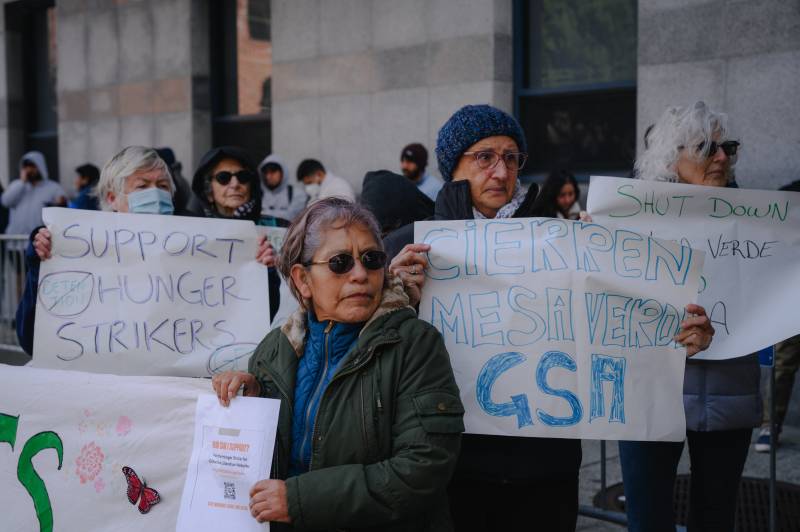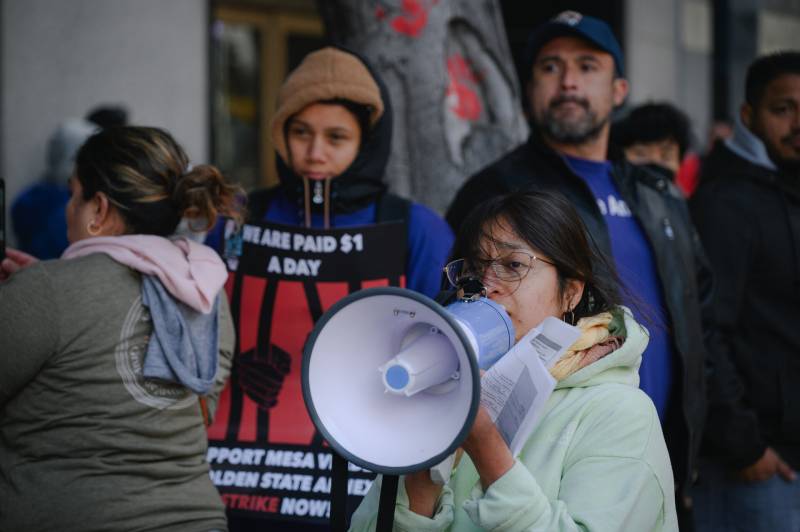Update, 1:45 p.m. Friday: Five detainees on an ongoing hunger strike have sued U.S. Immigration and Customs Enforcement and a private prison company for alleged retaliation.
Several dozen men have refused meals for more than a week, protesting what they call “inhumane” living and working conditions at the two for-profit detention centers in Kern County where they are held.
The lawsuit (PDF) accuses ICE and its detention contractor The GEO Group of punishing hunger strikers by taking away their yard time, family visitation and other recreational activities, and by threatening them with solitary confinement.
GEO staffers have also made dormitory temperatures “uncomfortably cold” and tried to halt the detainees’ strike by leaving food on their beds for long periods of time, according to the complaint, which was filed in the U.S. District Court in San Francisco on Thursday.
“We filed this lawsuit to protect the First Amendment rights of a group of people who have put their bodies on the line to protest the injustice of their detention,” said Bree Bernwanger, senior attorney with the Lawyers’ Committee for Civil Rights of the San Francisco Bay Area.
“What they should draw is the attention of ICE and GEO to the horrendous conditions that they are detained under,” she added. “Instead, they were deprived for no reason except to punish them. That violates the Constitution.”
Spokespeople for ICE and GEO have denied the alleged retaliation, but declined to comment further on the lawsuit.
The five plaintiffs, who have been detained for lengths ranging from 10 months to more than two years, are asking the court to let them represent about 80 detainees who began the hunger strike on Feb. 17, in a class-action lawsuit.
Original story, 6 p.m. Thursday: More than 70 people locked up at two for-profit immigration detention centers in Kern County have refused to eat any meals for a week now, according to interviews with detainees and legal assistance organizations.
A U.S. Immigration and Customs Enforcement spokesperson confirmed that the hunger strike became official as of last Sunday evening, after detainees missed nine consecutive meals at the Mesa Verde ICE Processing Center in Bakersfield and the nearby Golden State Annex in McFarland.


